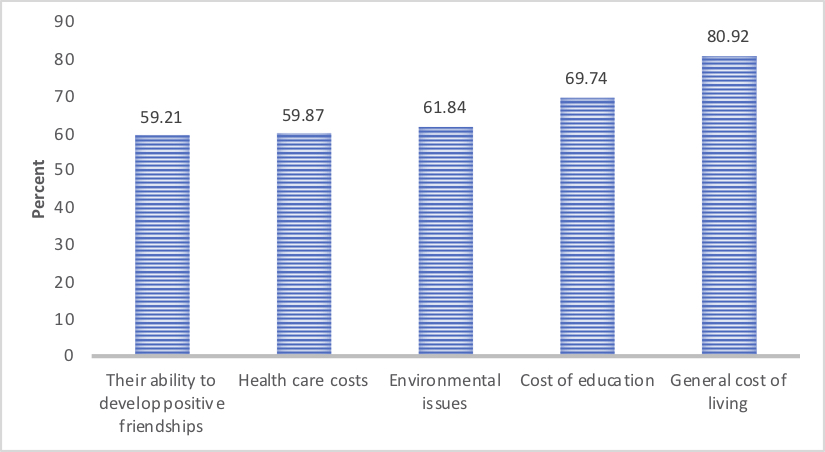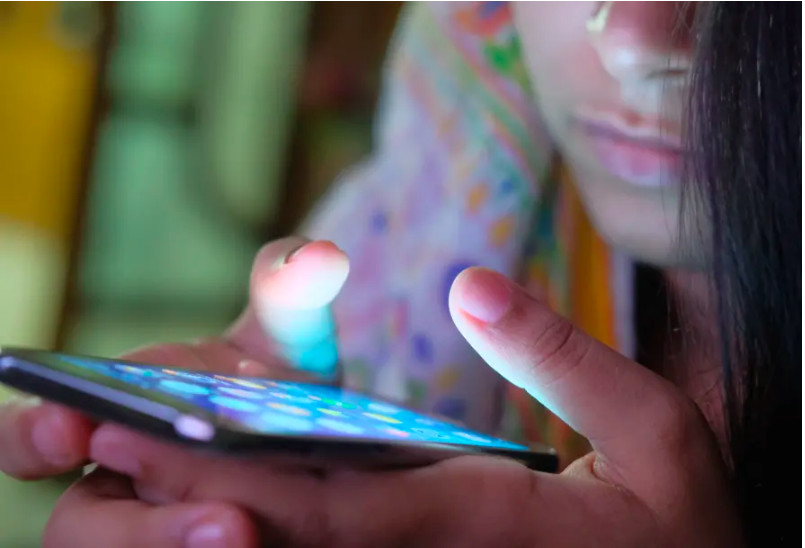
Education
A chance to even the odds

Slowing wage growth, the increasing cost of education and the fast pace of social change make it difficult for parents to prepare their children for uncertain futures
Published 23 October 2019
Being a parent can be both a satisfying and stressful experience, particularly during periods of uncertainty and rapid social change.
Recent news of weaker consumer spending and the contraction of business investment, slow wage growth and the rising cost of living can create uncertainty.
But what issues are parents most worried about at the moment?

The Youth Research Centre at the Melbourne Graduate School of Education has explored some of the main concerns of parents in Victoria and found the cost of living and education, the impact of slow wage growth on family budgets, the environment, health care costs and children’s ability to develop positive relationships are all topmost on parents’ minds.
This is followed by their ongoing concern about the impact of social media and technology.

Education
A chance to even the odds
The findings use data collected by the Life Patterns Program from one cohort of parents aged 43 to 44 years in 2017.
The survey data was collected in 2011, 2014 and 2017 when parents were asked about their parenting experience to produce our report, Parenting in the 21st Century.
When asked about the challenges of parenting – the cost of living and the cost of education topped the list as family budgets are strained by slowing wage growth and the increasing costs of raising children.
According to the Australian Bureau of Statistics (ABS) Household expenditure survey, between 2009-10 and 2015-16, education costs increased by as much as 43.5 per cent, while medical and health costs increased by 25.6 per cent.

During the same period, the ABS Wage Price Index showed that average annual increase in wages declined from 3.8 per cent to 2.1 per cent.
In a 2018 study, Australian researchers Professor Saunders and Megan Bedford estimated that a couple with two children require an income of $A1,173 per week to meet the minimum income for healthy living (known as MIHL) budget.
Their modest estimates included just $A24 per week for health and $A61 per week for education.
But parents paying for private health insurance and private schooling require a far greater income.

Health & Medicine
Parents: 24/7 CEOs of our kids’ lives
Parents are also concerned about the environment, health care costs and their children’s ability to develop positive relationships.
In a previous report, we found the whole cohort selected the environment as one of their top three concerns for Australia.
Male parents tend to have a higher level of concern about children’s access to quality education, health care costs and the ability of their children to develop positive friendships.
While female parents are more concerned about environmental issues and the political climate.
We also find differences according to the age of the youngest child. Parents of younger children (aged from newborn to five years) generally have higher levels of concern for their children’s future than parents with older children.

In each of our surveys, participants were invited to comment on various parenting issues.
We found concerns are concentrated in four areas: concerns for their children’s social and emotional development; the impact of social media and technology; the general cost of living and housing affordability; and access to quality and affordable education.

Education
What school is best for your child?
The ubiquitous use of social media is the subject of several recent reports highlighting increasing anxiety, general poor mental health and bullying in children.
Several of our participants commented:
“I am concerned about the impact of social media with bullying, trolls, image, likes, dislikes, and “FOMO” (fear of missing out).” Mother working as an architectural drafter.
“I think that smart phones and other technology like iPhones/iPads (and their over use) have created more problems than solutions. We were better off without them.” Mother working as a social worker.
“Technology is a huge issue...I have a child starting year 7 next year. He is a sensible child but is addicted to technology.” Mother working as a bookkeeper.
And parents concerned about their children’s social and emotional development commented:
“My concern is for developing children with strong moral values to enable them to make sensible choices amidst the chaos.” Mother working as a registered nurse.
“The way that society has become less about others and all about the ‘cult of me’ worries me tremendously as to the world my children will be living in.” Mother working as a manager.

Parents also expressed exasperation with Australian society in general:
“I can’t imagine the world my daughter will be an adult in - but I can see the trends - towards a less equitable society in user pays, environmental segregation, reducing living standards, smaller government. Let’s hope the generation after Gen-Y can fix our mess.” Mother working as an academic.
“The current reactionary political climate and its attendant social and environmental destruction are of the profoundest concern possible. As the parent of a girl, I have particular concern regarding her ability to promulgate and develop socially transformative, politically progressive feminist values in such a regressive culture.” Father working as an administrator.

Health & Medicine
Share the love with positive posts
“I believe my children will live in an era of rapid world change, and I encourage them to be adaptable, resilient and intuitive.” Father working as an environmental manager.
These parental concerns centre around the impact of social and economic change on children’s everyday lives – as well as the accelerated pace of social change that generate anxieties around how to prepare children for uncertain futures.
The costs of educating children and accessing resources that might contribute to their healthy development are a symptom of the increased pressure parents are under to make the right decisions for children, despite financial constraints.
Importantly, parents in the 21st Century are now under considerable pressure to prepare their children for a future they cannot even imagine.
Banner: Getty Images